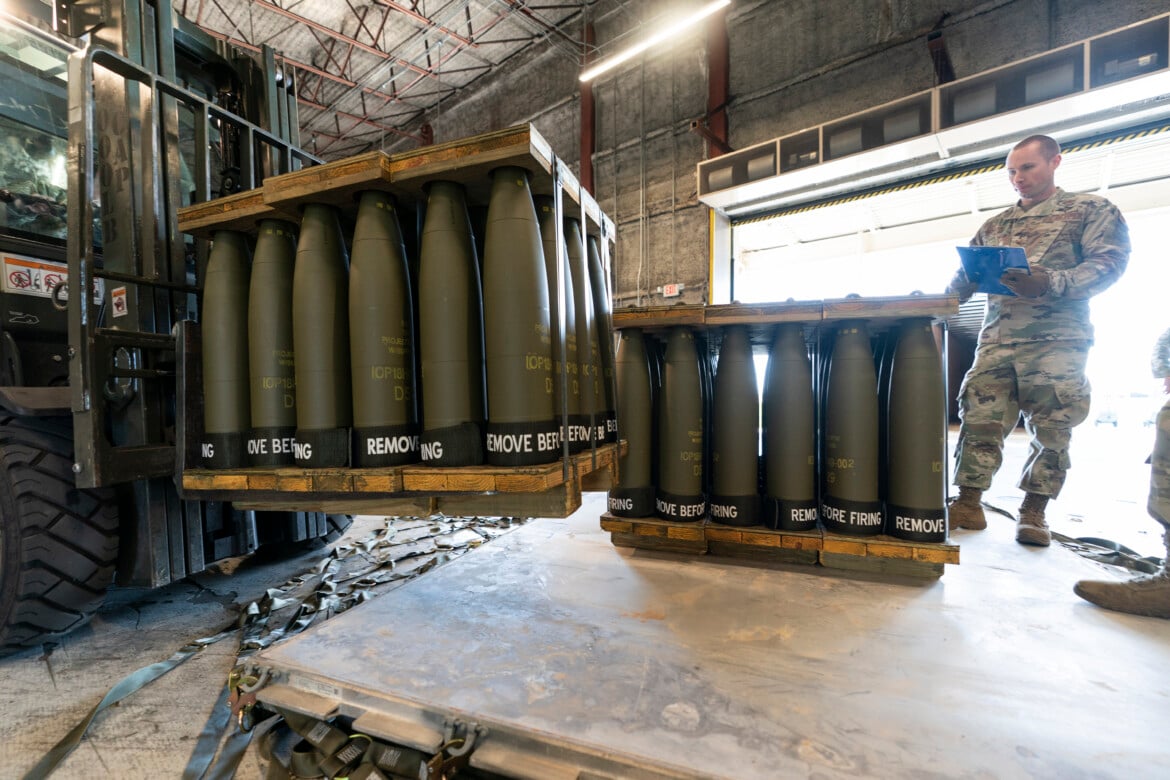Analysis
Europe is transitioning to a permanent war economy
We are facing a planned, structural rearmament, not just a temporary spike in military spending. It is perhaps no longer enough to just monitor or denounce.

It is not a specter haunting Europe, but a Moloch that is mortgaging its future: the militarization of both political discourse and the economy.
This trend is now beginning to shape long-term choices, pre-sold and made to seem “natural” by relentless rhetoric that transforms fear into political support and makes the military industry appear as the inevitable future. This is no longer a mere militaristic “drift,” but a clear-eyed, brutal and dangerous political choice, with consequences to be borne by the people of Europe.
We are facing – as the data tells us, going beyond the public announcements – a planned, structural rearmament, not just a temporary spike in military spending.
In 2021, the total military spending of EU countries was €218 billion; in 2024, it rose to €343 billion, and consolidated forecasts for the current year stand at €392 billion (very close to the psychological threshold of €400 billion). This alone is enough to show that the supposed “underfunding of defense” touted by the EU Commission and Council is nothing more than an ideological construct. Not only because military spending is already at an all-time high and growing faster than any other public budget item, but because the idea being pushed is that to defend ourselves, we must arm ourselves. In reality, the best way to build a safer collective life is to guarantee rights and work to mitigate conflicts.
The true scale of European militarism is revealed if we look at the future being mapped out. Andrius Kubilius, the EU Commissioner for Defence, was explicit: “We Europeans will invest around €6.8 trillion in the military sector by 2035, with 50% of that flowing into the procurement of armaments. It will be a true financial big bang.” He also clarified that 90% of this burden will be borne by the budgets of member states.
The real goal is not to build up the Union on a military level, but to benefit armed interests. This is also demonstrated by yet another name change for the Commission's rearmament plan, now given a PR makeover and touted as the Preserving Peace-Defence Readiness Roadmap 2030. Once again, an Orwellian appeal to “peace” is meant to convince public opinion that is resistant to open warmongering. At each step, the name has been changed to make it more marketable, but the substance remains the same: building up an armed Europe before building a true common foreign policy. But the latter is the only logical and sensible thing to do, including for those who want a “strong Europe” in a military sense.
Thus, we’re supposed to get the weapons of war first, and then – maybe, someday – actual policy. It is an abuse of logic and democracy that favors only one party: the arms manufacturers.
Because this is the point: the acceleration is not designed for the defense of the European peoples, but for fueling profits. This is proven by the programs already in place – such as the European Defence Fund and the ASAP program – as well as Brussels’ own data. These instruments have not led to any real integration of European arms production. Each country continues to buy and produce for itself, following the logic of petty power and the influence of small industrial interests, ensuring that the market remains fragmented and remaining subservient to U.S. technological preeminence.
This mad rush is justified by the fear of external threats, stirred up purposefully to suspend critical thinking and shut down democratic debate. But this is a deception. What they call “defense” refers to military architecture alone, while real defense – social, civil, diplomatic, informational – is not even a topic of discussion. And most importantly, every billion spent today on weapons is a billion taken away from education, healthcare, the ecological transition and social policies: a permanent war economy.
The part of civil society advocating for peace and disarmament has been denouncing this for years: increased military investment will not bring more security, but more instability and more crises. Above all, it will mortgage our future. European rearmament is being built on public debt and multi-year spending commitments that will be passed on like a noose to future governments and generations.
Now, faced with this massive escalation, it is perhaps no longer enough to just monitor or denounce. We need structural alternatives to war. We need policies for security that don't require weapons and a European civil defense. We need autonomous and multilateral diplomacy. We need to dismantle the central role of the arms industry in the European economy. Because it is not true that there are no alternatives. The problem is that no one wants to discuss them.
What lies ahead is not a brief interlude. It is a historic crossroads. Either we allow Europe to become an armed fortress in the service of military profits, or we build another model of security: one that starts with people, not with weapons.
Originally published at https://ilmanifesto.it/economia-di-guerra-permanente on 2025-10-17
